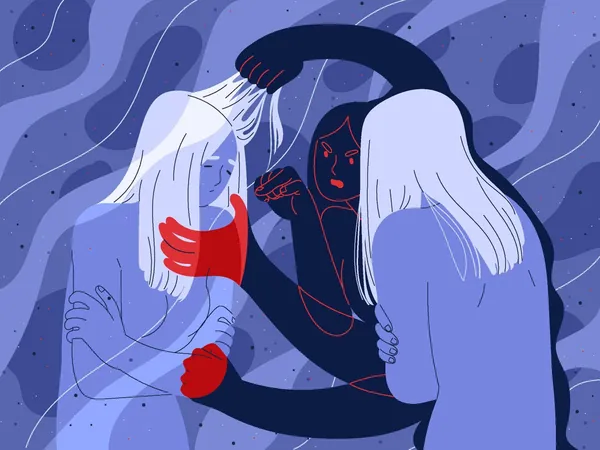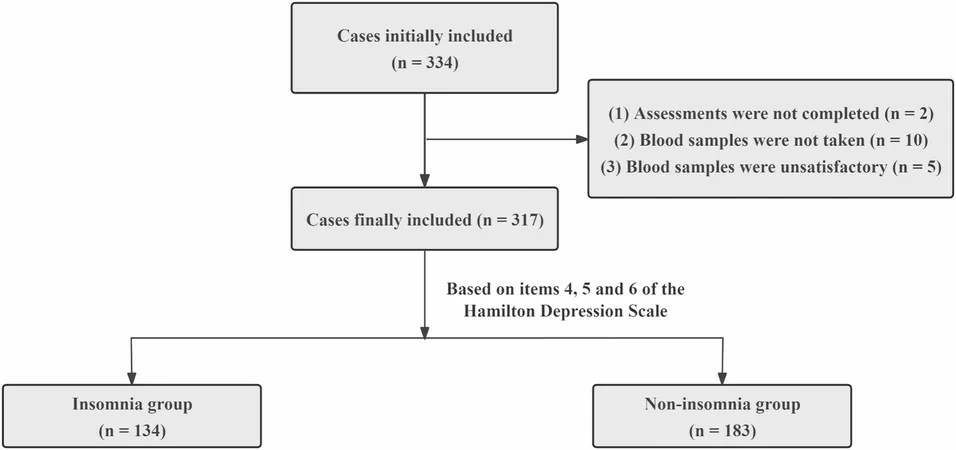
Unlocking Yourself: 4 Surprising Reasons You Can’t Stop Blaming Yourself
2025-08-20
Author: Noah
The Silent Struggle of Self-Blame
Night after night, you lie awake, replaying your past faux pas and wrestling with guilt. This isn’t just an annoying habit; it's a mental trap that many find themselves caught in. Research indicates that during these quiet hours, self-blame and rumination tend to peak, disrupting not only sleep but also mental well-being.
The Illusion of Problem-Solving
Shocking as it may seem, what feels like 'problem-solving' is often just another term for rumination. We tell ourselves we’re finding answers to our mistakes, but in truth, we’re deepening feelings of guilt. This cycle doesn't just affect how we view ourselves; it undermines our confidence and relationships. A 2025 study shed light on why some people find it nearly impossible to forgive themselves, revealing a pattern of self-condemnation.
1. Your Focus on the Past Holds You Captive
Research has shown that those who can’t forgive themselves often live as if their past is still their present. They replay mistakes in vivid detail, anchoring themselves to a debilitating 'past-as-present' mindset. In contrast, those who forgive themselves adopt a future-focused perspective, redirecting their thoughts toward growth and possibility.
2. Feelings of Powerlessness
A lack of faith in your own ability to change your circumstances can trap you in a cycle of blame. The same study revealed that individuals who struggled with self-forgiveness often felt powerless and doubted their capacity to influence their futures. Conversely, those who could forgive themselves fostered a sense of agency, empowering them to move forward.
3. Merging Actions with Identity
The weight of self-blame is often due to viewing mistakes as reflections of our entire character. Many see their missteps as proof that they’re fundamentally flawed. However, those who manage to forgive themselves can separate their actions from their identity, realizing that mistakes don’t define them.
4. Avoidance Over Active Processing
When guilt feels suffocating, the natural instinct might be to distract ourselves—binge-watching shows or overworking to avoid facing uncomfortable emotions. While this can provide temporary relief, it may prevent long-term healing. In contrast, actively processing these feelings—reflecting on what you’ve learned and adopting a compassionate perspective—can lead to genuine resolution.
Transforming Mistakes into Lessons
To break free from the shackles of self-blame, shift your relationship with those sticky memories. They don’t disappear, but you can choose to view them as catalysts for growth and resilience. Use narrative reframing to mine your past for lessons rather than shame.
The good news? When viewed through a lens of growth, your mistakes transform into proof that you dared to try, paving the way for a brighter future.









 Brasil (PT)
Brasil (PT)
 Canada (EN)
Canada (EN)
 Chile (ES)
Chile (ES)
 Česko (CS)
Česko (CS)
 대한민국 (KO)
대한민국 (KO)
 España (ES)
España (ES)
 France (FR)
France (FR)
 Hong Kong (EN)
Hong Kong (EN)
 Italia (IT)
Italia (IT)
 日本 (JA)
日本 (JA)
 Magyarország (HU)
Magyarország (HU)
 Norge (NO)
Norge (NO)
 Polska (PL)
Polska (PL)
 Schweiz (DE)
Schweiz (DE)
 Singapore (EN)
Singapore (EN)
 Sverige (SV)
Sverige (SV)
 Suomi (FI)
Suomi (FI)
 Türkiye (TR)
Türkiye (TR)
 الإمارات العربية المتحدة (AR)
الإمارات العربية المتحدة (AR)